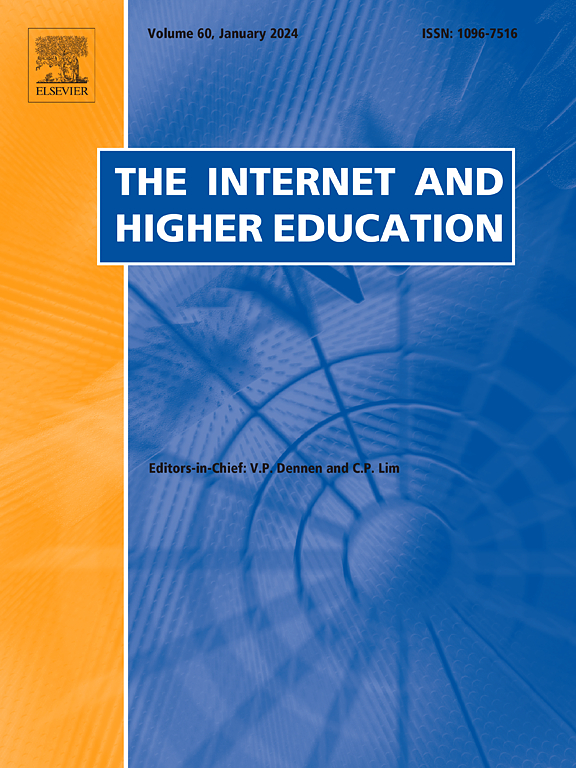Gamified self-regulated learning improves EFL Reading comprehension, motivation, self-regulation skills and process patterns: Quasi-experiment with process mining
IF 6.8
1区 教育学
Q1 EDUCATION & EDUCATIONAL RESEARCH
引用次数: 0
Abstract
This study investigates the effects of a flipped gamified self-regulated learning (SRL) approach in an English as a Foreign Language (EFL) classroom for first-year undergraduates. Using a quasi-experiment with process mining approach, 177 students were divided into two groups: a gamified experimental group (N = 91) and a non-gamified control group (N = 86). The findings revealed that the gamified SRL approach significantly improved English reading comprehension and motivation, as evidenced by enhanced intrinsic value and consistently higher voluntary task completion. Moreover, SRL skills were enhanced, as shown by survey results and high engagement with SRL strategies observed in the trace data. Process mining analyses using First-Order Markov Models further demonstrated that gamification fostered more dynamic SRL behaviors, including greater engagement with scaffolds and a stronger focus on evaluative learning strategies. These results highlight the potential of the gamified SRL approach to enhance students' SRL skills, motivation, and improve learning outcomes. This study offers actionable insights for designing effective interventions that integrate SRL scaffolds with motivational elements to support students' success in flipped learning environments.
游戏化自我调节学习提高英语阅读理解、动机、自我调节技能和过程模式:过程挖掘的准实验
本研究探讨了翻转游戏化自我调节学习(SRL)方法在本科一年级英语课堂教学中的效果。采用过程挖掘的准实验方法,将177名学生分为两组:游戏化实验组(N = 91)和非游戏化对照组(N = 86)。研究结果显示,游戏化阅读教学法显著提高了学生的英语阅读理解能力和阅读动机,其表现为内在价值的增强和自愿任务完成率的持续提高。此外,从调查结果和跟踪数据中观察到的对SRL策略的高度参与可以看出,SRL技能得到了提高。使用一阶马尔可夫模型的过程挖掘分析进一步表明,游戏化促进了更动态的SRL行为,包括更多地参与脚手架和更关注评估学习策略。这些结果突出了游戏化SRL方法在提高学生SRL技能、动机和改善学习成果方面的潜力。本研究为设计有效的干预措施提供了可行的见解,这些干预措施将SRL框架与动机元素结合起来,以支持学生在翻转学习环境中取得成功。
本文章由计算机程序翻译,如有差异,请以英文原文为准。
求助全文
约1分钟内获得全文
求助全文
来源期刊

Internet and Higher Education
EDUCATION & EDUCATIONAL RESEARCH-
CiteScore
19.30
自引率
4.70%
发文量
30
审稿时长
40 days
期刊介绍:
The Internet and Higher Education is a quarterly peer-reviewed journal focused on contemporary issues and future trends in online learning, teaching, and administration within post-secondary education. It welcomes contributions from diverse academic disciplines worldwide and provides a platform for theory papers, research studies, critical essays, editorials, reviews, case studies, and social commentary.
 求助内容:
求助内容: 应助结果提醒方式:
应助结果提醒方式:


